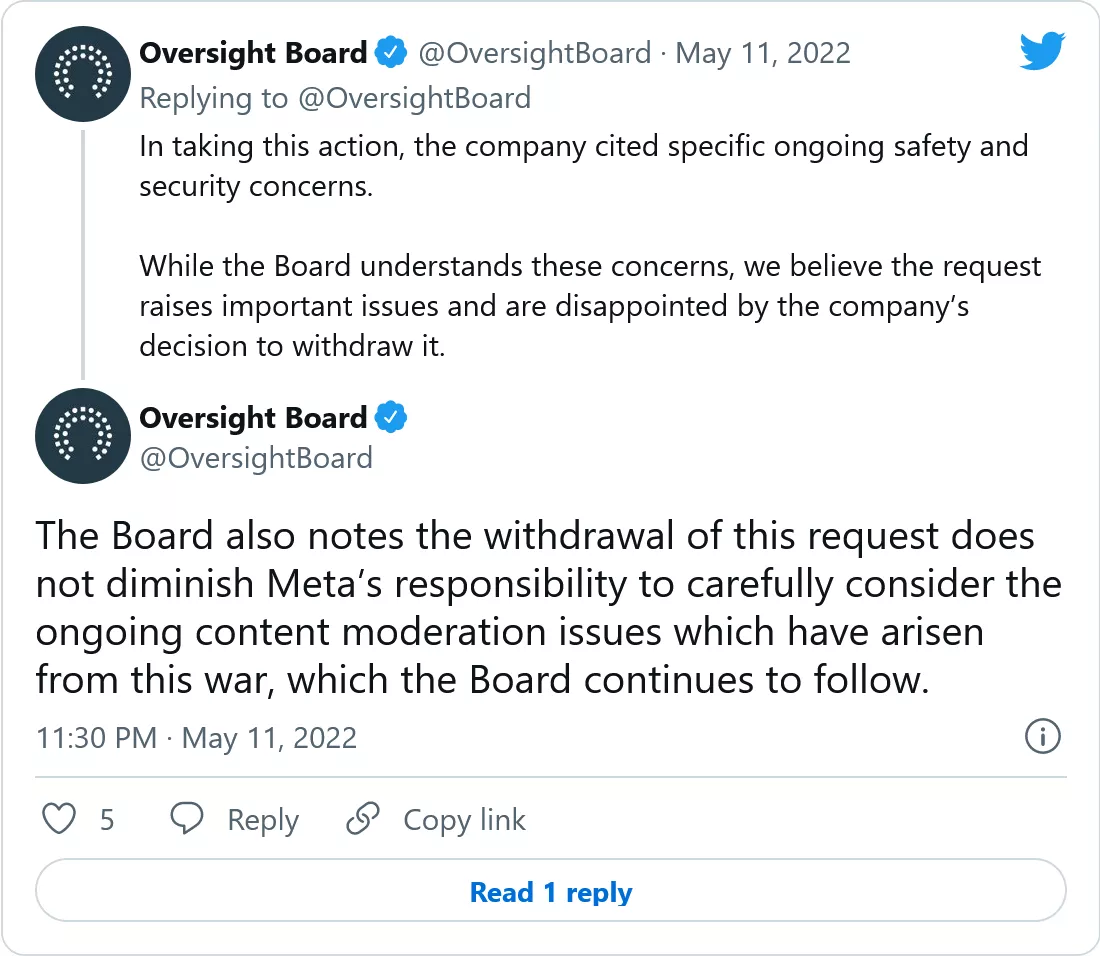Recently, meta withdrew the request for its supervision committee to supervise the content review policy related to the Russian Ukrainian war on the grounds of "continuous safety and security issues" This is the first time the company has withdrawn such a request and set a precedent, which may damage its working relationship with the Committee.
A statement signed by the committee said: "meta has informed the supervisory committee that the company will withdraw its earlier request for policy guidance on content review related to the ongoing war between Russia and Ukraine. Although the Board understands these concerns, we believe that the request raises important issues and are disappointed with the company's decision to withdraw the request."
In a blog post, meta confirmed that the request for policy consultation was withdrawn, but refused to explain the content of the request, when it was made and explain in detail why it was withdrawn.
Maybe meta's security concerns are real. After all, it has been labeled an extremist organization by Russia and banned from use in that country. But this shows how limited the oversight committee is in becoming a real constraint on the power of social networks, especially in times of crisis. According to the committee's charter, meta is not required to comply with its policy advice, but it needs to respond publicly and explain the reasons for its adoption or non adoption of the guidance.
At present, it is unclear about the specific content of meta's solicitation of opinions from the board of directors, but there is an obvious guess. Reuters reported in early March that Facebook moderators were instructed to temporarily allow violent appeals to Russian leaders and soldiers fighting in Ukraine. A few days later, Nick Clegg, meta's policy director, clarified in a memo leaked to employees that the policy was not intended to allow violent statements against Russian civilians or "heads of state". The Russian government then accused meta of engaging in "extremist activities".
Another problem is that meta will initially secretly ask the board for advice. Jeff Gelman, a spokesman for the company, said the company did not publicly announce its request because they would not put undue pressure on the committee to accept their case referral. But it has made public other previous requests, such as last year's request that the Commission weigh cross checks, a controversial policy that protects celebrities and politicians from censorship measures applicable to other users.

Instagram was the most controversial body in charge of content review when it was decided by the Supreme Court in 2020. Led by nearly 20 human rights experts, legal scholars and a former prime minister, the committee can overturn meta's decision on specific content submitted by users. So far, the committee's most striking decision is to support meta's action to kick president trump off the platform - the initial indefinite ban is reduced to a two-year ban under the committee's balance.
Since the trial of cases began at the end of 2020, the supervisory committee has selected 30 cases related to individual content and thorny issues such as hate speech, nudity and drug abuse. It has overturned meta's initial decision in most of these cases. But according to Evelyn Douek, an associate research scholar at the knight's first amendment Institute, which closely studies the committee, it is uncertain whether the committee will have an impact in the long term.